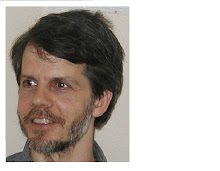Much of the news from Afghanistan of late has been about horrendous acts by US soldiers that have outraged the sensibilities of the Afghani people. While it's fair to say who wouldn't be outraged by one's country being occupied by foreign troops, these recent offenses are particularly egregious, because they are degrading to the Afghan culture, or reflect a disregard for Afghanistan lives.
America's political and military leaders and our media pundits either show shock and outrage at such behaviors as the recent massacre in Kandahar, or they insist it was an accident as in the case of the burning of Korans. In either case the messages is, “this is aberrant behavior, this is not how we train our soldiers to be.”
My response is, what do you expect? You are reaping what you sow. The military trains young men to kill, this is not an easy thing to do. I don't claim to know the psychology of this training, but once people are trained to kill should we really be surprised that they do? Specifically, that they do even when that goes against so-called rules of engagement? I would argue you cannot have it both ways. Sure, most soldiers may never commit war crimes beyond the crime of participating in war in the first place. But those soldiers such as the soldier (or soldiers) who committed the massacre in Kandahar are not psychopaths, nor are they simply fatigued troops suffering from PTSD. They are an integral part of what war is about.
If America's leaders were serious about their outrage at the Kandahar massacre they would end the war that led to it. That would be a first step towards restorative justice. I'm not holding my breath. Nonetheless a war crime has been committed, and a lesser justice at least should be pursued.
Among the Afghanis there is a call justice through Afghanistan's judicial system. Obama promises a full investigation. While I can clearly understand the desire of the people of Afghanistan to seek justice in their own ways, their judicial system is still being developed, and it is unclear what roles Islamic law and Western law play. On the other hand justice through the American military judicial system inevitably lacks at least the appearance of legitimacy.
There is a third option that I have not heard discussed. Trial in the international criminal court. This is perhaps because it is as outrageous as the notion that the people of Afghanistan should be able to seek justice for a crime committed in their country in the courts of their country. This third option would be for the Americans to turn the case over to the international criminal court. Although we are no longer signatories to the court, we still could voluntarily participate. The international criminal court is set up to prosecute individuals for four types of crimes. This massacre certainly was one of these types of crimes: crimes of war.
Granted that this option is not politically tenable at this time, we can still examine the benefits of this option. Only in examining the untenable do such things ever become possible.
The international criminal court would allow for a degree of objectivity that we cannot expect from either Afghanistan's judicial system or from the American military. If Americans want to convince the Afghanistan people that we want justice, objectivity is essential.
Perhaps more important than the specific benefits regarding US Afghanistan foreign relations, to engage the international criminal court would represent a small step by the US government towards embracing international law and the rule of law over the rule of might makes right. This small step does not commit the US to future engagement with the international criminal court although signing and ratifying the treaty that forms the international court certainly is the right thing to do.
Subscribe to:
Post Comments (Atom)

No comments:
Post a Comment